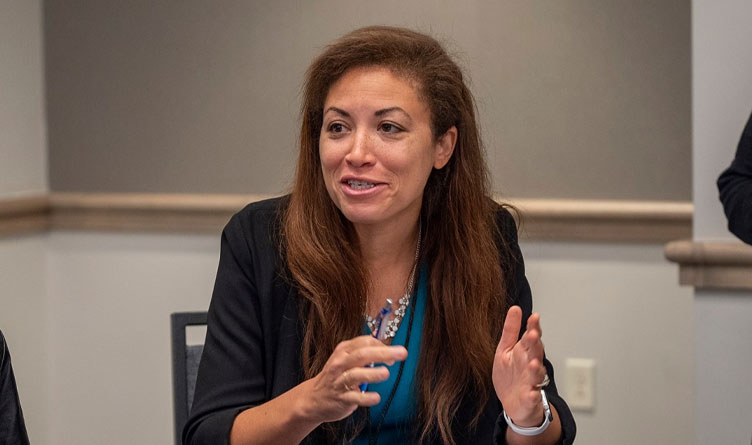Photo: TN Education Commission Penny Schwinn Photo Credit: TN Dept. of Education / Facebook
The Center Square [By Jon Styf] –
Tennessee Department of Education Commissioner Penny Schwinn made clear Thursday the state’s new public school funding formula will prioritize teachers and will not outsource teaching responsibilities in the arts.
Schwinn was asked about the outsourcing after questions arose from comments she made during a Feb. 3 steering committee meeting when asked about schools working with nonprofits for art education.
Schwinn clarified Thursday she was referring to the flexibility of getting added help for additional arts programs. She said the new formula, the Tennessee Investment in Student Achievement (TISP), would have the same allowances the current Basic Education Program (BEP) has for schools to get additional help for custodial contracts or after-school programs from outside sources.
“To be clear, as the daughter of a teacher who was a single parent, and to be very, very clear for the teachers out there, it absolutely would not replace a credentialed teacher in the classroom,” Schwinn said. “It’s critically important that we emphasize that point given how hard our teachers work and the respect that they demand in terms of the work that they do.”
Schwinn, Gov. Bill Lee and several members of subcommittees that worked on creating TISP spoke Thursday on aspects of the new formula. Lee said the language for the bills associated with the funding mechanism, which would be in place for the 2023-24 school year, should be completed by Feb. 18.
Lee was asked why his recent budget proposal did not put $750 million in additional funding into the BEP. Instead, it is proposed to go to career and technical education (CTE) improvements in all high schools and middle schools ($500 million), moving 14 public schools out of flood plains ($200 million) and grants ($50 million), along with $32 million in facilities funding for Tennessee’s charter schools, with half of it recurring, $25.5 million in recurring funds for summer learning camps and $6 million to establish the Institute of American Civics at the University of Tennessee.
“I actually think that the current formula is not a good formula,” Lee said, saying that would not be a wise investment. “… We have a responsibility to be stewards of those dollars.”
*** Click Here to Support Conservative Journalism in Tennessee. We can’t bring your articles like this without your support!***
Elizabeth Brown, the student chair of the funding formula student committee, said she and her fellow students at Coffee County Central High School in Manchester would like to see CTE programs prioritized and CTE funding was a major focus of her subcommittee’s recommendations.
Brown said career-based programs in middle school also would help.
“Lots of our students feel pressured to choose a certain career path,” said Brown, who is president of the Tennessee Future Business Leaders of America. “I know for me, it’s business, and I’m happy to have chosen that option, but we need more options.”
Jared Bigham, senior adviser on workforce and rural initiatives with the Tennessee Chamber of Commerce and Industry, said that his subcommittee worked on making a connection between industry and public schools to address workforce needs across the state and “create talent pipelines to those jobs and those opportunities.”
“We are not just looking at education in a K-12 sense, but we are also looking at those workforce needs and being responsive to employers across the state,” Bigham said.

About the Author: Jon Styf, The Center Square Staff Reporter – Jon Styf is an award-winning editor and reporter who has worked in Illinois, Texas, Wisconsin, Florida and Michigan in local newsrooms over the past 20 years, working for Shaw Media, Hearst and several other companies. Follow Jon on Twitter @JonStyf.




